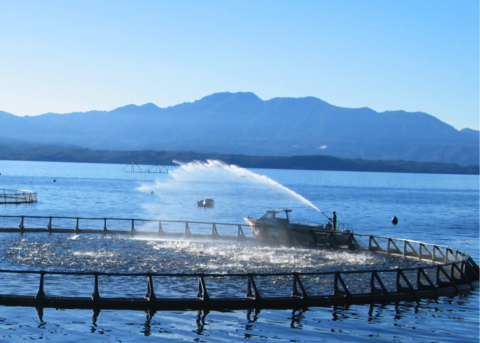Ideas into movement
Boost TNI's work
50 years. Hundreds of social struggles. Countless ideas turned into movement.
Support us as we celebrate our 50th anniversary in 2024.

On 23 and 24 October, Norway will host the “Our Ocean” conference: An annual international conference that was initiated in 2014 by the US Department of State outside of any UN process. The people who live with and are surrounded by the ocean, and who are most affected by the deterioration of the marine environment, are not present in the conference panels: Fishers, coastal communities and first-affected by climate change indigenous groups.

Those who claim the ocean to be “ours” are the usual suspects: Government officials and big multinational corporations. To them, the conference offers the invitation “to build partnerships between government, industry, science and civil society” and to present “voluntary commitments” for sustainability. The Our Ocean conference is used by senior governmental officials and high level politicians to add legitimacy to a governance space that is not rooted in the UN system nor has a democratic mandate from any of the states represented.
What is true about the conference is true about the acting of its host, Norway. Norway’s huge offshore oil industry is the elephant in the room, completely omitted from the schedule. There is no representation from fishers, coastal communities and Sámi coastal people, suffering from and resisting environmental destruction and compulsory acquisition of their land and their fjords.
The 1987 UN report “Our Common Future” was a clear statement from the World Commission for Environment and Development, chaired by former Norwegian prime minister Gro Harlem Brundtland. The report addressed a broad concept of sustainability, based on environmental, social and economic development. A crucial point recommended by the Commission, was also broad participation and transparency in political processes that may have consequences for the environment and society. It recognised also that poverty reduction, gender equity, and wealth redistribution was crucial to formulating strategies for a sustainable environment agenda. This profound Norwegian contribution laid the groundwork for the Rio Earth Summit in 1992 and the UN Sustainability Agenda. But time has changed: With the ‘Our Ocean’ conference, the Norwegian government is building on the agency earned more than three decades ago, but it is time to question the role of Norway today.
The global oceans and the people living from and with it cannot be rescued by adding some sustainability flavor to the industrialization, exploitation and demolition of the ocean that is going on. What is needed is to stop destructive activities that ruin the marine biosphere: High CO2-emissions, pollution, industrial overfishing, offshore oil mining, port expansions to name a few. We have long reached the point where people should be put before profit, as organizations and movements have demanded for over a decade.
Instead of confronting these destructive activities and those who profit from them, the conference is part of a discourse of “blue-washing”. The message of blue-washing is: The ocean crisis can be solved by the same actors and the same methods that have caused this crisis – marketization, monetarization, privatization. It is no accident that the list of conference speakers includes the CEO of DeepGreen, a company set up for mining minerals from the ocean floor – exactly what large campaigns by Pacific communities are trying to stop, in the struggle for environmental justice and food sovereignty. What has been done on land is now to be done in the sea: the destruction of natural and social environments in the name of capitalist profit. Instead of the “Our Ocean” conference, what is needed are democratic processes, countering systemic oppression and ensuring the principles of equity and free, prior and informed consent. Our governments need to uphold their commitments to international treaties and conventions, to act in line on the basis of human and labour rights and environmental justice rather than the bottom line of multinational corporations What is being sought is a just transition based on a commitment to growing human equality as well as a relationship to the environment which enhances rather than degrades the functioning of eco-systems.
We stand in solidarity with coastal and Indigenous communities, insisting their early warning obervsations relating to ocean ecosystems be recognized and supported.
***
This statement is open and can be signed on to. The statement is endorsed by the following organisations and coalitions: